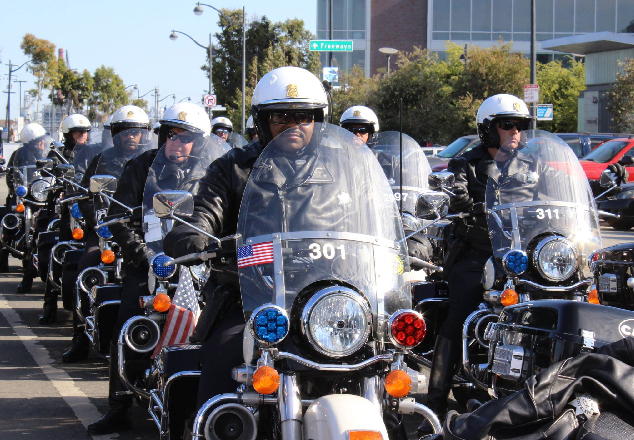The horrifying footage out of Memphis came from the body cameras of the cops involved, but over the years, particularly in San Francisco, some of the most important evidence of police misconduct has been caught on private cell phones.
That is: People were watching the cops, and filming the cops.

Which is legal, in most cases, although the cops don’t always accept that and have tried to block and prevent filming, or even sought to seize cameras and phones.
The SF Police Commission, which has become the center of police reform discussion in the city, will consider new rules specifically protecting the rights of civilians to monitor and record police officers in the line of duty.
The recommendations come originally from the Department of Police Accountability, and most of them have been added to a proposed new General Order.
Among other things, the rules would:
Update DGO to include First Amendment protections that protect individuals’ rights to observe, photograph and record the police and the Fourth Amendment right to retain the recorded material free from government intrusion.
Update section “Bystander Filming of Officer-Suspect Contacts” to address the right of all persons to observe, photograph, and record the actions of officers during the discharge of their duties in public as well as other areas (such as a person’s home, business or common areas of public and private buildings) where an individual has the right to be present, so long as the observation, photography, or recording does not threaten officer safety and does not interfere with the performance of the officer’s duties.
Update the DGO to state that officers shall allow a person to record their own actions with the police. Include a provision that states that when an officer is placing a person under lawful arrest and that individual is recording their own interaction with police, the officer may instruct the person to cease recording and put away the recording device.
Include a provision that states officers shall not block, obstruct, or interfere with cameras and other recording devices
Include a provision that states officers shall not demand that a person state a reason why the person is observing, photographing or recording police activity.
The main DPA recommendation that the department has so far rejected:
Include a provision that states officers shall not retaliate against any person who lawfully exercises the lawful rights to witness, observe, record, comment on, criticize, or peacefully protest police activity and shall not take any other type of police action in retaliation for the exercise of any of those rights.
The department said that was “not warranted or reasonable.”
The commission will also hold a discussion on the role of mechanized equipment, including the killer robots, in policing.
The public, of course, can weigh in.
The hearing starts at 5:30 pm.
The Board of Supes holds a Committee of the Whole Tuesday/31 to discuss the situation at Laguna Honda Hospital. It’s alarming and potentially deadly: If the state and the feds pursue the route that they could, hundreds of elderly, vulnerable patients could be in essence evicted from their homes at Laguna Honda and transferred to facilities far out of town—and many of them will probably die.
This is proximately the fault of Gov. Gavin Newsom, and will require the city to call on its representatives in Washington to intervene.
As Dr. Teresa Palmer, a geriatrician and former doctor at the hospital, notes:
It is clear from recent information coming out of Laguna Honda state and federal inspections that an ongoing effort will be needed by SFDPH/LHH and consultants to create systems of management that will keep Laguna Honda in the good graces of [the federal Center for Medicare Services].
In this regard, there is plenty of blame to go around. We cannot exonerate CCSF/SFDPH and the administration of Laguna Honda: there was a lack of oversight over many years.
However the fact remains that Laguna Honda has always accepted patients that other nursing homes would not take, due to Medi-Cal discrimination and due to medical and behavioral complexity. My experience has been, and I believe this is ongoing, that at Laguna Honda hospital, with all of its problems, persons with severe and complex problems live longer and do better than in any other nursing home.
Therefore, the focus of this meeting needs to be primarily on how the Board of Supervisors can be a force for protecting the most vulnerable: those who are now residents at Laguna Honda and those of us could need a bed there at any time.
Administration at Laguna Honda and consultants obviously need more time to “turn the ship around.” In order to prevent death and harm to current and future residents, this time needs to be made available by CMS.
If CMS is obstinate in this regard, no matter what, deadly evictions and closure procedures should NOT resume. A way must be found! What can we do to get State and Federal Government to work together to help?
That hearing begins at 3pm.



